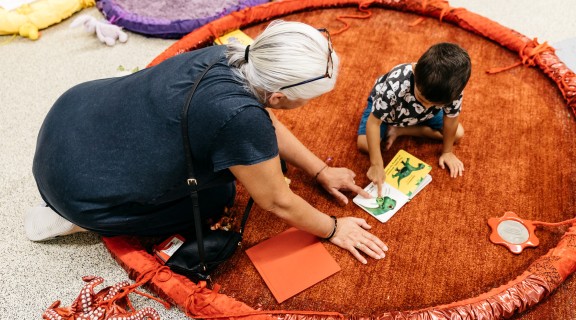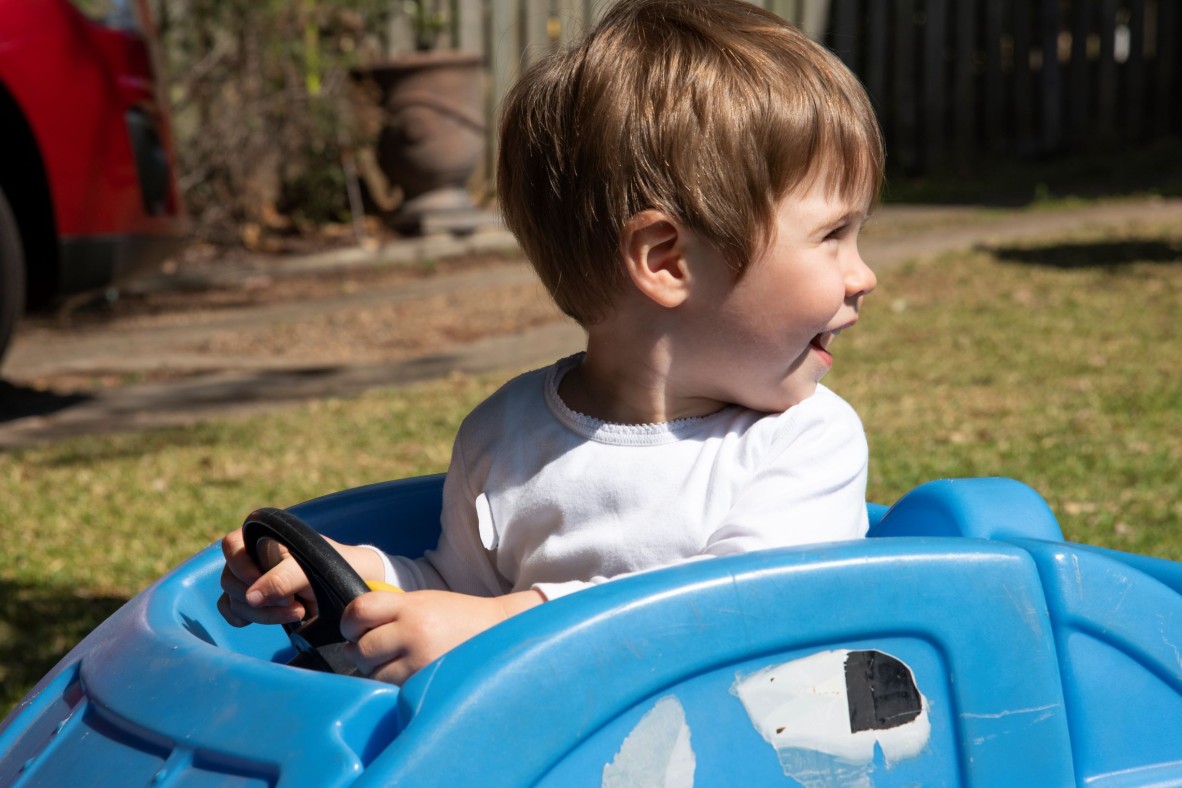
Don't forget non-fiction!
10 February 2021 | State Library of Queensland
Have you ever been surprised by a very young child being able to pronounce and identify the most complex dinosaur or bug names? Where many grown-ups might stumble over a tricky dinosaur's name, their toddler might be able to confidently describe it as a "Pachycephalosaurus" - then inform you it was a herbivore!
When young children have a genuine interest in a topic, they become a sponge, absorbing as much information and knowledge about the subject as they can. Try sparking your child’s interest and love of learning by sharing illustrated non-fiction books or magazines on new or unusual subjects.

From vehicles to animals to magical creatures, young children often become very attached to a particular subject.
Sharing a book is not just about reading the words. You can get all the benefits of words and conversation when you talk about pictures together, or even examine aspects such as colour or size on each page.
In your conversations about pictures you can follow where the child’s interest takes them no matter how random: what a dinosaur eats, how fast a motorbike goes or what sort of house a kangaroo lives in. All conversations count as opportunities to use words, gain understanding, and best of all: spend time with you.
If you’d like some advice on different books, try visiting your local library and chatting with the library staff. You might even like to help your child browse the shelves and choose their own books.
Interesting non-fiction books
First dinosaur encyclopaedia by DK First Reference
Dinosaur atlas by Anne Rooney and James Gilleard
The illustrated encyclopaedia of trucks by Peter Davies
National geographic readers: trains by Amy Sheilds
Fire trucks (big machines at work) by Cynthia Amoroso
National geographic kids readers: cats by Joan Marie Galat
Bugs A to Z by Caroline Lawnton
Butterflies and moths by David J Carter.
Comments
Your email address will not be published.
We welcome relevant, respectful comments.